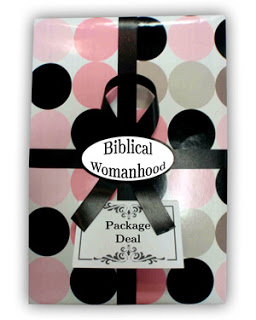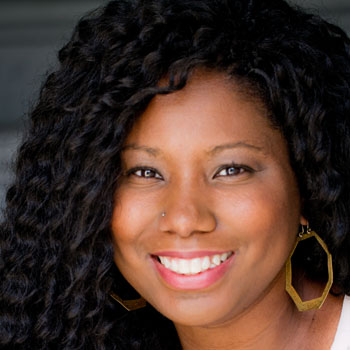“None But Jesus” is one of my favorite worship songs because it reminds me to find my center in Christ.
Whenever I sing this song, I think back to being led in worship by the unbelievably gifted, Christy Nockels at a women’s conference. It was so exquisite, so breath-taking, so Kingdom, to be standing in a room full of women, under the sound of Christy’s voice, and sing that there is “None But Jesus”.
That experience helped form what I believe is the primary value of “Third Way Womanhood”—a commitment to filter all the chaos and confusion of the biblical womanhood debate through Jesus.
So today, I’ll process what I experienced as I tried to connect with, the “Fearlessly Feminine” camp, the convictions I adopted from them, and the ways I disagree with their position, through this lens.
For the sake of this post, I’ll refer to the women who have adopted, practice and teach a more traditional expression of Christian femininity that entails “complementarianism” as the “Fearlessly Feminine” camp.
This label comes from Jani Ortlund’s book. I’ve found it to be a perfect summary of this group’s convictions. They have embraced most of the traditional expressions of “femininity” and do so without fear of criticism or ridicule. How are they able to be so bold? They’ve called their expression ‘biblical’, created a “True Woman Manifesto,” and now offer it to us in an all-or-nothing package.
The problem is not the doctrines, necessarily, it’s the all-or-nothing package deal they offer with the words, “biblical womanhood” attached to it.
I can’t get down with that package deal, much the same way I can’t get down with a CSA.
Kohlrabi, Brussel Sprouts, Onions, and Carrots
If you’re not familiar with a CSA—then you probably haven’t read, “7” by Jen Hatmaker–which you should do immediately. I’m serious, this blog will be up for a while so go. Buy the book. Devour it. Change your life.
Life changed? Fabulous! That month off of media was CRA-ZY right?
Welcome back to the blogosphere!
Like I was saying, I can’t get down with a CSA.
CSA stands for “community supported agri- culture”. You get a share of produce weekly or bimonthly for a set fee from a local farm. This program is so cool because it cultivates a farm to table mentality—but, I’m sorry, it’s not for me. Because in most cases, the farmer choses for you what you’ll get in your weekly share, based on what’s in season and what they’ve harvested. The means I could end up with a share full of carrots and onions (yummy!) and kohlrabi and brussel sprouts (super-gross).
No, I’m more of a farmer’s market kind of girl. I want the freedom to wander from booth to booth, squeezing, tasting, smelling, discerning. “Can I make something yummy with this? Will my kids freak out if this shows up on their plate? What would this taste like paired with my favorite wine? Are we really kohlrabi type of people?”
The rigidity of the “Fearlessly Feminine” camp that requires I accept their doctrines and traditional expressions of femininity in order to be accepted as a “biblical” woman was a huge disappointment to me. I didn’t have the freedom to squeeze, taste, smell, and discern the various positions they offered in their “share”.
Farmer’s Market Femininity
The problem with this camp’s traditional expressions of femininity is that they are rooted in, well, tradition, not necessarily in Scripture or even, in Jesus. That’s what I experienced when I tried to assimilate into the “Fearlessly Feminine” camp. They have enshrined the traditional culture of the white, fifties, middle class homemaker or, in Sarah Edwards’ case, an 18th Century pastor’s wife who owned slaves, as their archetypes, and somehow expect modern women, or in particular this black, modern woman to relate to them. More importantly, if I, a) a black woman who is b) married to a white man, and c) is used to being the only minority in the room, couldn’t can’t relate to them, then surely it will be even more difficult for the women we’ll be serving in our center-city Boston church plant. Imagine how well this piece of pastoral advice, influenced by this camp would sit with them: “By the way, God wants you to give up the only job you have that supports you and your family to bop around your house in capris and an apron.” She’d look at me like I’m crazy and write me off as irrelevant.
I didn’t quite feel at home at this camp.
After three years of attempting to reconcile who I am and who they deem as “biblical”, I reduced my subscription to a “share” of this camp, to practical homemaking, family, and marriage advice.
You see, when I began to unpack their teachings I found their “share” contained: encouragement in homemaking, Christ-like submission, and freedom to express our God-given femininity (yay!), I also found a disturbing theodicy, a use of Scripture as a rulebook and not a story that points to Jesus, and a denial of women’s liberty to serve in the role of pastor or teaching elder in the local church (nay!).
Fearlessly Submitting Like Christ
I see nothing in Scripture that precludes a woman from serving in an elder role in the church. If I am filtering this issue through the framework of Jesus’ ministry and life, then I see the exact opposite. I see a radical counter-cultural trajectory that empowers, affirms, and equips women to lead.
“But, wait Osheta, didn’t you say in your last post you affirm role distinction in your marriage?” Yes, yes, I did. I affirm role distinction in my marriage because I see this reflected in the Trinity. Jesus, within the context of his most intimate relationship (to his Father), willingly operated in a distinct role of submission. Since I take my cues from Jesus, I must accept that distinction of roles are good and necessary.
Here’s the kicker—without expecting my husband to submit to me in return.
Since I am equal to T.C., the fact that I’m choosing to humble myself in submission is a gift I give him expecting nothing in return.
Fearlessly Servant Leading My Husband
I’m so thankful for the godly example of submissive wives in the “Fearlessly Feminine” camp. They taught me how to practically live out submission. What frustrates me about the opposite camp, the “Liberated Christian Woman” or (LCW), is the caricature they create of a submissive wife. They portray her as oppressed and unable to lead beside her husband merely because she chooses to submit to his role as spiritual leader. In fact, I’m in a position of great power as a submitted wife. As I submit, I am positioning myself under my husband and leading him from a place of service and humility. I don’t submit in order to coerce him to give me what I want, I submit because I know God opposes the proud but gives grace to the humble. One of my favorite theologians and pastors, Greg Boyd calls this “power under” as opposed to “power over” leadership.
I am not a doormat. I’m not quiet (At all. Ask my husband. I’m mouthy as all get out!). I’m not passive. I’m not often overruled. I don’t ask before I buy a pair of shoes (or new candles from Bath and Body Works). I have a voice and a seat at the table in decision-making in our family. Submission only becomes a factor in our marriage when there are areas in which we disagree.
For instance, when Hurricane Katrina was on track to hit New Orleans, I was eight months pregnant with our second child. We evacuated to my parents’ house in Texas, but after that we didn’t know what to we would do or where to we would go. News outlets reported that residents were not being allowed to return to their flooded homes for weeks—possibly even months! I knew we needed to make a decision ‘right quick and in a hurry’ because baby was coming soon and momma needed a sterile room and an epidural! I wanted to stay in Texas to have our son and move after that, but as my husband and I prayed and sought advice from our mentors, we received a call from a friend encouraging us to move to Boston before havi
ng the baby. We had several long, long, looong conversations until T.C. basically said, Babe, I think this is what God wants us to do. I need you to support this decision and trust me.
Out of respect for my husband and reverence for Christ, I submitted and it’s been the best decision we’ve ever made for our family.
I think when we make deliberate choices to reflect Jesus’ humility and submission we are in turn blessed for our obedience.
Fearlessly Faithful In Suffering
A few years ago, my friend lost two babies to miscarriage. She was of course, devastated. As we prayed together, I was horrified to discover that due to her exposure to the “Fearlessly Feminie” camp, she mistakenly attributed her suffering and loss to God. When I look at Jesus, I see a God who is by our side through suffering, but is never the one inflicting suffering upon us. He is the Good Shepherd; there is no shadow of turning in him.
This camp overwhelmingly affirms a theological worldview in which everything that has ever happened in the past, happens in the present, or happens in the future is “God’s will.” What does this mean for women who experience deep loss or suffer tragic circumstances?
They initially blame God, come to accept that His will for their suffering is somehow meant for his glory, and then go on living in a functional distrust of his goodness or trustworthiness.
As a church planter’s wife, I’m often thinking about the women who will join our church. I want to be very deliberate in the way I lead and care for them. They will come to me with questions: “Why can’t I find a job?”, “Why would God give me the desire to be a mom, but I’m struggling with infertility?”, “Why am I still single?”, “Why did Newtown happen?”. My answers should communicate the nature of God as our Savoir, Lord, and Friend as revealed in Jesus. After tasting, smelling, squeezing, and discerning their theodicy, it’s a part of the “Fearlessly Feminine” share that I cannot make into something yummy.
None But Jesus
There is no one else for me, none but Jesus. He is the standard by which I decide what to believe and how to live. So, as a “Third Way Woman” I cannot affirm anything that does not give off the fragrant aroma of Christ and his teachings. I love the ways the “Fearlessly Feminine” camp reflect Christ beautifully in their commitment to creating welcoming homes primed for hospitality, submission to their husband, and joyfully embracing their femininity. I’m thankful for their contribution to the community of believing women, but I don’t want to be boxed into a package deal that forces me to affirm something that doesn’t meet the standard of Christ. I’m a Third Way woman, a Jesus-way Way woman, and that makes me a biblical woman.
[youtube http://www.youtube.com/watch?v=Mz8b0IbhPMk]




Comments (0)